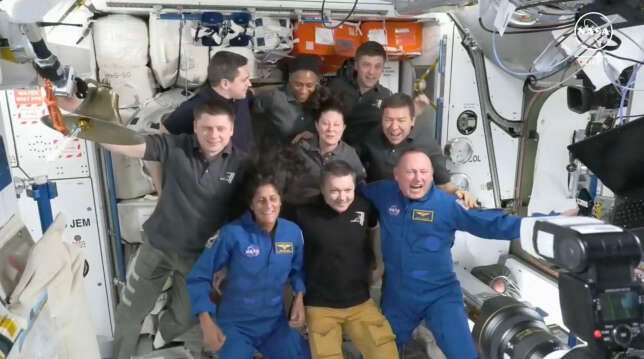Despite Starliner’s flaws, no astronauts are ‘stuck’ on the ISS

“I want to make it very clear that Butch and Suni are not stuck in space”Steve Stich, head of NASA’s commercial flight program, said on Friday.
The development of the American space agency was necessary, because “more than three weeks after the start of a mission that was initially supposed to last only a few days”the two astronauts still do not know “when they return home”, observed CNN.
The Starliner spacecraft – whose development at Boeing has encountered many delays and disappointments – “experienced both helium leaks and propellant problems” during its laborious docking with the ISS on June 6, remember Space.com. Program officials have insisted to reporters that the capsule is perfectly capable of returning astronauts to Earth. “in case of emergency”.
“But after testing the thrusters in space, NASA and Boeing said they wanted to take more time.” to understand “the root cause” damage noted on June 6, points out the site. A series of tests will therefore begin on July 2 at the White Sands test center in New Mexico. “to replicate the way the thrusters were used during flight”Mr. Stich explained.
“Routine tasks”
“The tests will last about two weeks – it will all depend on what they give – and then more in-depth analyses will be necessary”underlines Space.com. So many elements which prevent us from setting an exact date for the return to Earth of Starliner and its passengers.
“We are not in a hurry”said Mr. Stich, announcing that NASA was now considering “extend the maximum duration of the Starliner mission from 45 days to 90 days”.
While waiting to return to dry land, “Williams and Wilmore have been integrated into the rest of the crew currently aboard the ISS and are performing routine tasks”precise CNN.
This Starliner mission, the first manned one, is supposed to allow Boeing and its capsule to obtain certification from NASA for conducting regular operations – like SpaceX, Elon Musk’s space company, which has been transporting astronauts to the ISS for four years.



